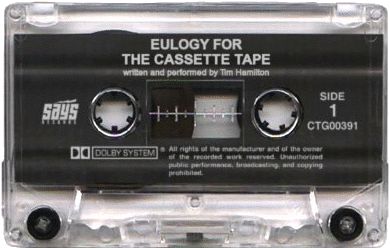I saw a news article last night where the inventor of the CD has admitted that it is now obsolete in the face of USB drives, iPods and DVDs. It got me thinking about this, which I only wrote a month or so ago.

I saw a news article last night where the inventor of the CD has admitted that it is now obsolete in the face of USB drives, iPods and DVDs. It got me thinking about this, which I only wrote a month or so ago.

Wrote this recently though I’d been working on the idea for a while. I have been interested in the idea of concepts that the English language has no matching word for ever since I first read the Neal Stephenson book “Snow Crash”. For those who haven’t read it (or can’t remember), the protagonist muses on the Japanese word, zanshin. The nearest meeting point in English is “emotional intensity” but it’s not quite right.
Mokita has a translation that has a closer meeting point, but English still has no matching word. Mokita describes a situation wherein everyone is aware of a topic but no one will discuss it. It’s not taboo, though a taboo is often the reason for mokita. I think the closest explanation I’ve encountered is a friend telling me of the “White Elephant” in a room that everyone is desperate to ignore.
Anyway, this being one of the reasons I have this blog up and about, feel free to read and critique.
Mokita
There is a word I cannot say.
It is stuck to my tongue
Trapped amongst the silent k’s
and unvoiced vowels that languish
in the hollow spaces of my language
A word is trapped between my teeth.
Like a mouthful of paint,
it stains everything else that I say.
Leaving me desperate
to give it a voice and an exit.
This word is replacing my silences.
It is the worst kind of secret,
one that everyone is keeping from each other.
Barring itself from discussion.
Festering in the dead air it creates.
Tags: poetry, critique, mywork
Technorati Tags: poetry
Reading: The Ode Less Travelled by Stephen Fry
Listening: “Domestic Harmony” by Do Re Mi
What is poetry?
I have, at different times, wondered about this, thought about it, rolled my eyes on hearing the question and wanted to smack someone for asking same (admittedly, the person in question was drunk and aggressive)
Admittedly, thanks to the inimitable Stephen Fry, star of stage, screen and the talking type wireless, I have an answer that I think I’m happy with.
To quote:
“Poetry is metrical writing”.
It is writing where consideration is given primarily to the weight of each word. It’s relationship with the rest of the piece.
I know that prose writers, be they fiction or non-fiction, take this into consideration. The difference I think is a matter of precendence. If a prose author were to take the care and crafting word by word that a poet does. I expect that many books would never be completed.
An author expects to clear a few thousand words a day, a poet expects to find a few thousand words in their latest book.
Like all attempts at putting a definition to an artform, they are by nature a little liquid. Partially because someone will invariably bring up something that tries to push boundries between one thing and another, or tries to mess up the definitions. Personally, I think they confirm the boundaries. To transgress a boundary, you have to kind of define and accept it’s existence. Otherwise, it’s posturing.
Technorati Tags: poetry, discussion, definitions
Powered by ScribeFire.